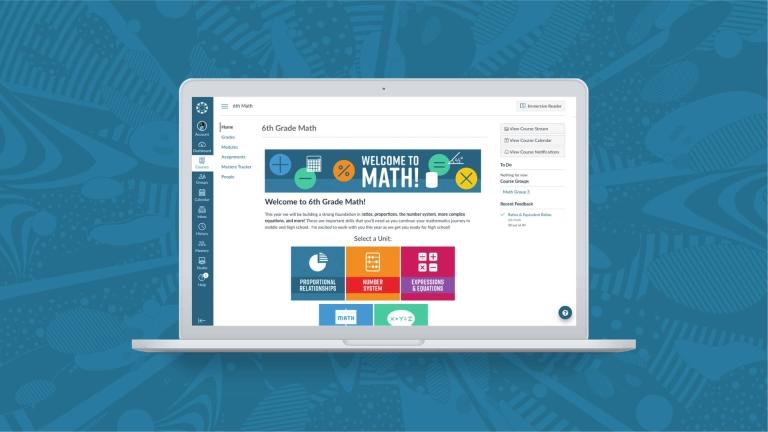
In the ever-evolving landscape of education and training, learning management systems (LMS) have become indispensable tools. LMS administrators are at the heart of these systems, the unsung heroes responsible for ensuring seamless e-learning experiences. In this blog, we'll dive into the world of LMS administrators, shedding light on their roles, responsibilities, and the path to becoming one.
So, what exactly is an LMS administrator? In simple terms, an LMS administrator takes the helm in managing, maintaining, and optimizing learning management systems for effective e-learning. Think of them as the tech-savvy captains steering the digital education ship, keeping the virtual classrooms running smoothly and ensuring that learners and instructors have a seamless experience.

Unveiling the LMS: Why Do Institutions Need One?
Before we dive into the roles and responsibilities of an LMS administrator, let's take a moment to understand what an LMS is and why educational institutions are clamoring to have one.
Imagine a platform that brings the classroom to your fingertips, allowing you to access courses, materials, and assessments from anywhere, at any time. That's precisely what a learning management system does. It's an online ecosystem that facilitates the creation, delivery, and management of educational content.
With the advent of the digital age, traditional classroom settings have given way to online learning. Educational institutions, corporations, and even small businesses have realized the potential of an LMS in providing efficient and scalable teaching and training solutions. Here are a few reasons why institutions need an LMS:
- Accessibility: Learners can access courses and resources remotely, eliminating geographical barriers.
- Scalability: LMS platforms can accommodate a few learners or thousands, making them ideal for institutions of all sizes.
- Personalization: Tailored learning paths and customized content help meet individual learners' needs.
- Tracking and Reporting: LMS systems offer in-depth analytics, enabling administrators to monitor progress and make data-driven decisions.
- Cost-Efficiency: Reduced costs associated with traditional classroom setups and printed materials.

LMS Roles and Responsibilities
Now that we've defined what a learning management system (LMS) is, let's identify the roles and responsibilities that fall squarely on the shoulders of LMS administrators. Think of them as the engine that keeps the e-learning machine running, as they are in charge of virtually every aspect of LMS implementation, maintenance, and improvement. Here's a breakdown of what they do:
- LMS Configuration: Setting up and configuring the LMS to meet the institution's specific needs. This includes customizing user interfaces, course structures, and user roles.
- LMS Reporting: Generating and analyzing reports to track learner progress, engagement, and course effectiveness. These insights help fine-tune educational content and strategies.
- LMS Integrations: Ensuring seamless integration with other tools and platforms, such as content authoring software, video conferencing tools, and external databases.
- LMS Support: Providing technical support to users, including learners and instructors, to troubleshoot issues and ensure smooth navigation within the LMS.
- Develop e-Learning Courses: Collaborating with subject matter experts and instructional designers to create engaging and effective e-learning courses.
- Assign Roles and Responsibilities: Managing user roles and permissions within the LMS to maintain a secure and organized learning environment.
- Maintain LMS: Regularly updating the system, applying patches, and implementing security measures to safeguard data and ensure uninterrupted access.
It's evident that LMS administrators wear many hats, and their role is pivotal in shaping the e-learning experience.

How to Become an LMS Administrator
Becoming an LMS administrator can be an exciting and fulfilling career choice, particularly in today's digital age, where online education and corporate training have gained immense popularity. If you're wondering how to become an LMS administrator, you're in the right place. The path to becoming one is more attainable than you might think. Here's a brief guide on how to get started:
- Education: While there's no strict educational requirement, a bachelor's degree in a related field, such as instructional technology or education, can be beneficial.
- Gain Technical Proficiency: Familiarize yourself with LMS platforms and other relevant software. Online courses, workshops, or certifications can help you gain applicable skills.
- Develop Soft Skills: Effective communication, problem-solving, and organizational skills are crucial in this role.
- Build Experience: Start as a junior administrator or in a related role, such as an instructional designer or e-learning specialist, to gain practical experience.
- Network: Connect with professionals in the field, join forums, and attend conferences to stay updated on the latest trends and technologies.
Why LMS Administrators Are Essential
In the digital age, education and training have transcended traditional boundaries. Learning management systems have emerged as the backbone of modern learning, and LMS administrators are the architects who make it all possible. They ensure that learners have access to knowledge anytime, anywhere.
LMS administrators wear multiple hats and play a pivotal role in shaping the learning landscape. They configure, troubleshoot, develop, and support, all while ensuring the smooth operation of the virtual classrooms. Without them, the world of e-learning would be a chaotic maze.
So, the next time you log into a learning management system, remember that there's a dedicated LMS administrator behind the scenes, working tirelessly to ensure your educational journey is seamless. They are, without a doubt, the unsung heroes of modern education.
Canvas LMS Empowers Administrators with Admin Analytics
The effectiveness of your LMS administrator depends on the quality of your learning management system. Canvas Admin Analytics makes it easy for administrators to see and understand how Canvas LMS is being used across their institution to quickly inform decision-making and improve success.
Ready to learn more? Read the 10 Ways Canvas Admin Analytics can transform teaching and learning at your institution today.
Related Content
 Teaching-With-Tech-10-Benefits.jpg
Teaching-With-Tech-10-Benefits.jpgBlogs
 cidilabs.png
cidilabs.pngBlogs
 canvas_x_tg_logo_lockup_780_x_520.png
canvas_x_tg_logo_lockup_780_x_520.pngBlogs
